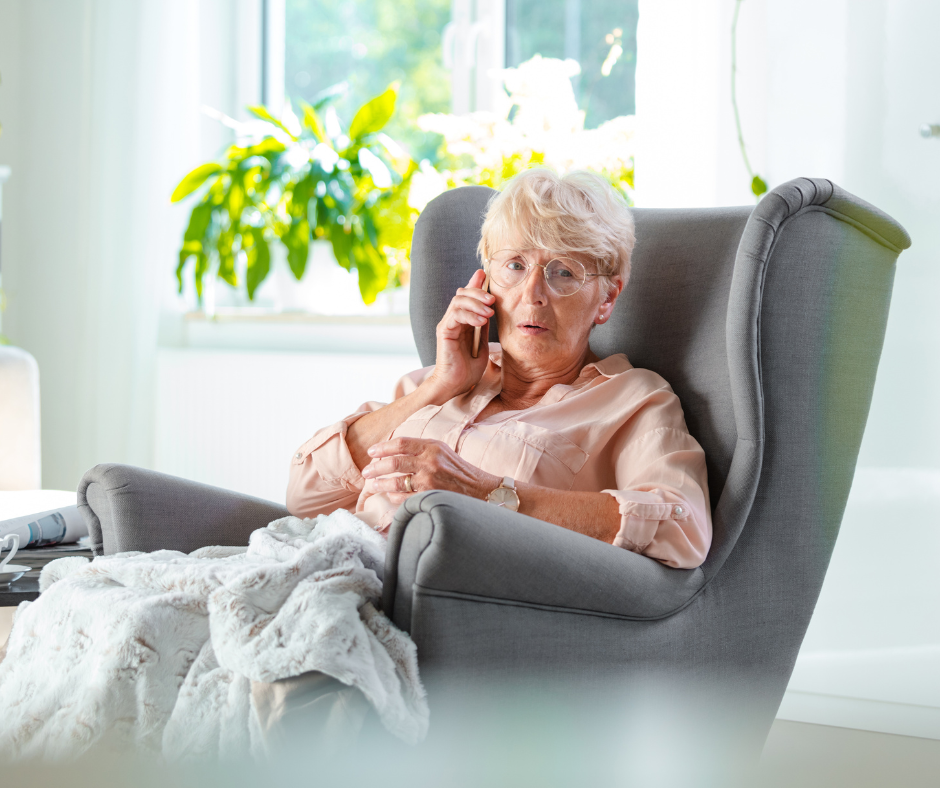Trying to keep seniors at home for as long as possible is fraught with pitfalls related to their health, their abilities, and other issues of old age. But there is also a more sinister element, that’s just as challenging to manage. Scams. They affect everyone, but maybe no group more than the elderly. Over the phone, through the mail, and even in person, there are nefarious entities out there waiting to prey on this vulnerable population.
The problem has gotten so bad that the Federal Trade Commission has created a Scams Against Older Adults Advisory Group focused on protecting older adults from scams. The committee concentrates on consumer education and outreach, industry training, technology and new methods for detecting scams, and scam prevention research.
AARP has a Fraud Watch Network to keep people up-to-date with the latest scams to look out for, plus loads of articles on how to protect seniors, and yourself, from being the victims of scams.
In today’s tech-saturated world, people are more likely to be victim of online scams or scams involving high-tech methods, like AI. According to a report on 20/20, about $10 billion a year is lost to online scams or digital fraud. And the group who lose the most money are seniors. The segment on the show was a real eye opener, and I highly recommend watching it.
This is not to say that seniors are more gullible; these hackers are just incredibly realistic. They often have the names of friends and family members who they claim are in trouble and need financial help and sometimes going as far as to use software to imitate the loved one’s voice. People of all ages can fall prey to this; it’s often just that seniors have more money to give (and lose).
Here are examples from real life: mine. Or more accurately, my mom’s.
My sister arrived as usual around lunchtime to find my mother on the phone, frantically taking notes. She asked her what was wrong.
“Jordan is in trouble! He needs a lawyer,” my mom told her. Jordan is my sister’s son.
The notes she had scribbled revealed much of what the conversation entailed. The caller was pretending to be Jordan himself, telling her that he was in trouble with the law and that “indictments were going to be handed down.” He needed money ASAP for a lawyer. Of course, my sister knew that if her son was in trouble, he would call her, not his grandparents. When she grabbed the phone and asked, “who is this?” the caller hung up.
Another time, she received a call from someone claiming to be an attorney who would represent another of her grandsons, Caleb, in a case where Caleb was at fault in an accident. This “lawyer” was going to help, but needed his fee paid immediately. He wanted her to wire money.
These calls happened when there was an aide in the house. How would someone who wasn’t a member of the family to know that these calls were bogus? If your seniors have a landline, possibly the safest thing would be to get a phone and plan that is designed to prevent this, as well as other problems (like if your mom calls you 45 times in an hour) related to people with memory decline. Of course, we didn’t know that this existed when it was happening to our parents.
Nothing catastrophic came from these calls, as my mom no longer has access to any of her accounts. But they both scared the crap out of her, and rightfully so. If they were scammers, how did they know her grandson’s names? That’s how good they are at what they do. That’s why you don’t have to have dementia to fall for them.
Here are eight tips from the National Council on Aging for how seniors can avoid scams:
1. Never give your credit card, banking, Social Security, Medicare, or other personal information over the phone unless you initiated the call
2. Be aware that you are at risk from strangers—and from those closest to you
3. Don’t let seniors be isolated—stay involved with them, and ask them if they’ve received any unsettling visits or calls
4. Tell solicitors: “I never buy from (or give to) anyone who calls or visits me unannounced. Send me something in writing.”
5. Shred all receipts with your credit card number
6. Sign up for the “Do Not Call” list and take yourself off multiple mailing lists
7. Use direct deposit for benefit checks to prevent checks from being stolen from the mailbox
8. Be skeptical of all unsolicited offers and thoroughly do your research
If you think you or your senior have been the victim of a scam call the Financial Fraud/Consumer Protection Division of your state, the AARP Fraud Watch Network Helpline at 877-908-3360, or the Office of Victim Crimes that also has a hotline: 1-833-FRAUD 11


Comments